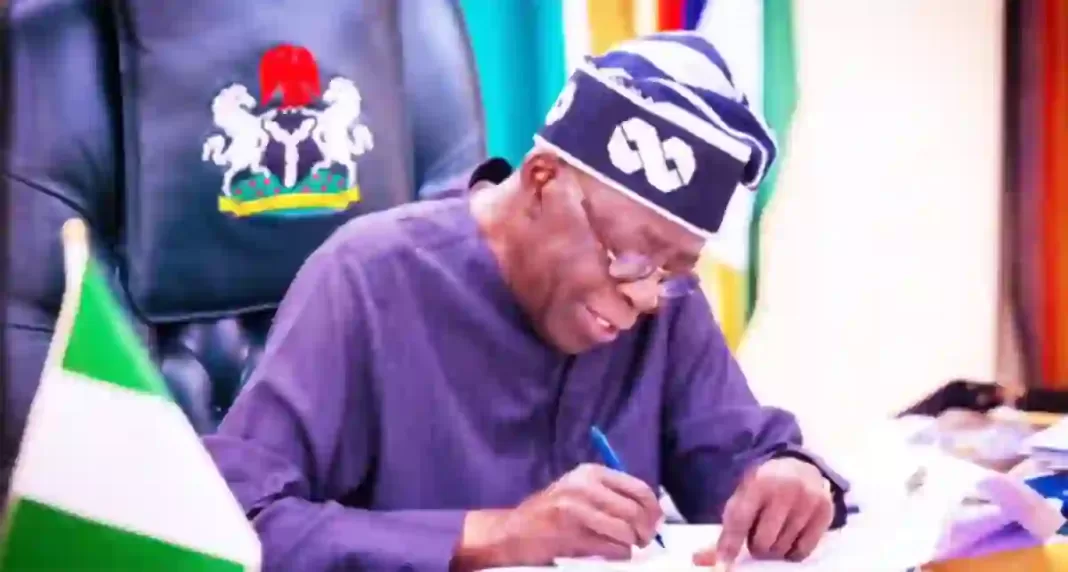By Lawal Dahiru Mamman
The late sage, Chief Obafemi Awolowo, in his bestseller, The People’s Republic, said that “The primary responsibility of leadership is catering for and promoting its people to the end so that they may live a full and happy life.” This means a government should recognise the dignity of its citizens and work tirelessly to improve their lives.
Currently, it seems Nigerians are far from living a full and happy life, given the hyperinflation, rising cost of living, and the embarrassing chaos in the oil and gas industry.
President Bola Tinubu assumed office with a promise of renewed hope. Nigerians supported him, even after the unceremonious declaration at Eagles Square on May 29, 2023, and the subsequent call for patience. Many questioned the rationale behind this call when the government showed no intent to reduce the cost of governance or stop the misuse of public funds on unnecessary activities.
Nigerians’ patience wore thin by August 1, 2024, leading to nationwide protests. But that was just the beginning. The situation could worsen if the government does not address the confusion in the petroleum industry. How can Nigerians pay over 1,000 naira for fuel and still struggle to obtain it? In Tinubu’s Nigeria, people spend hours queuing at filling stations and up to N50,000 for fuel, only to find themselves back on the queue after two days. This is unsustainable and unacceptable.
Nigerians are deeply frustrated. They feel that nothing is working and do not believe the problem rests solely with the president. Many believe that most of the president’s aides are either unfit for their roles or unwilling to perform them effectively.
Tinubu started by creating and renaming ministries, including appointing himself as minister of petroleum-the largest cabinet in the country’s history,. This is where the housecleaning should begin. The president needs to relieve himself of the role of minister of petroleum and appoint a competent individual to manage that role.
“I thank the cabinet members for their efforts, but I will relieve any of them of their duties anytime I feel that they are failing Nigerians,” the President had said in May.
It seems the Tinubu cabinet is in a race to failure. The national grid has collapsed a record five times this year alone, supply remains erratic, projects from previous administrations are abandoned, more contracts are awarded, food insecurity and malnutrition persist despite agricultural initiatives, and security is nearly non-existent. The list of needed improvements is extensive.
Reshuffling the cabinet is necessary, and the President may need to start with himself as minister of petroleum. Presidents should focus on their strategic administrative roles and avoid holding ministerial positions. The awkward norm began with former President Olusegun Obasanjo and continued with former President Muhammadu Buhari, and now, the current President, all due to the ‘sensitivity’ of the sectors.
Our petroleum industry is in disarray. The upstream sector, including exploration and production, is plagued by oil theft, undermining our OPEC quota and attacking our revenue base. The midstream sector, responsible for transportation and processing, is struggling with outdated facilities. The shocks in the downstream sector are evident in the current fuel crisis across the country. The Dangote Refinery, touted as a definitive solution to the country’s energy crisis, has been plagued by countervailing forces.
Ending the subsidy regime had potential benefits, but the increased federal allocation to states has left many more confused. The dividends have not trickled down to the common man.
The problem is immense and seems too great for a President who also chairs the Economic Community of West African States. Mr President should exit from the role and appoint an excellent technocrat to handle the petroleum sector comprehensively.
Obviously, there is a lot on the table on the president. Nigeria’s economy requires his full attention. As commander-in-chief of the armed forces of Nigeria, he needs to be on the driver’s seat to tackle the hydraheaded insecurity, banditry, terrorism and criminality in the country. Terrorists and bandits have grown bold, attacking monarchs and publicising their acts on social media.
Nigeria’s infrastructure is largely comatose. Hunger pervades the land, the Food and Agricultural Organization reports that over 26.5 million people are experiencing acute hunger this year, with predictions that between 82 million will face severe food insecurity by 2030.
The only way out of this stalemate is for the President to take decisive action against non-performing ministers, aides, and heads of agencies, starting with stepping down as minister of petroleum.
Lawal Dahiru Mamman writes from Abuja








